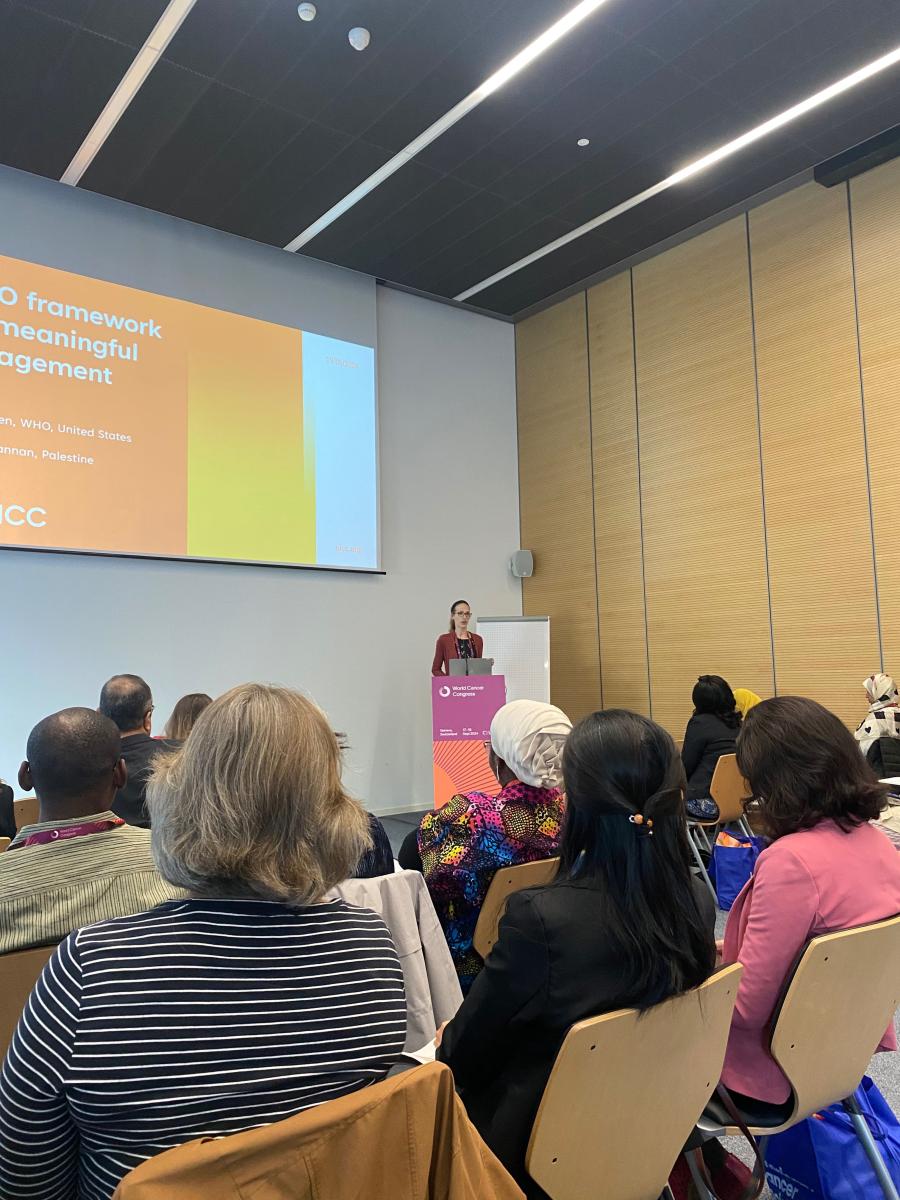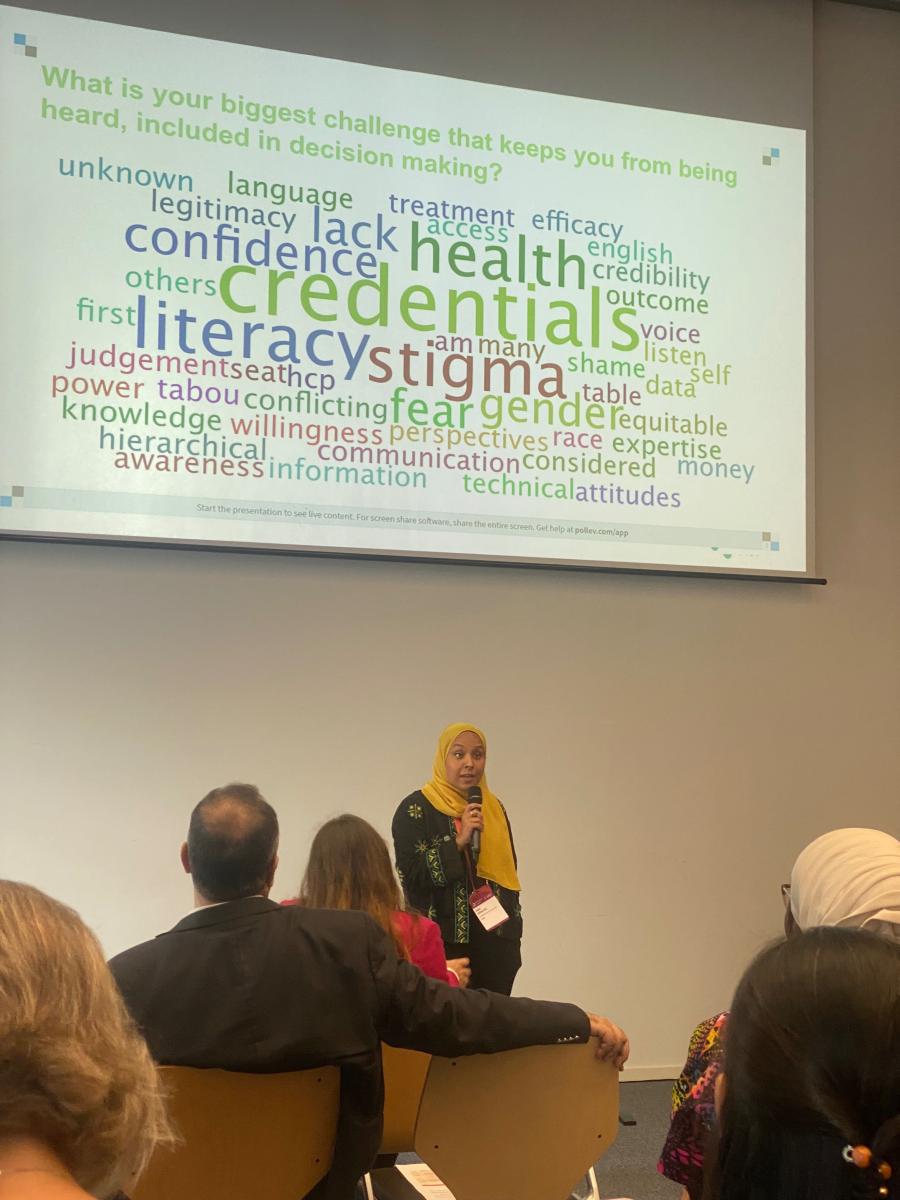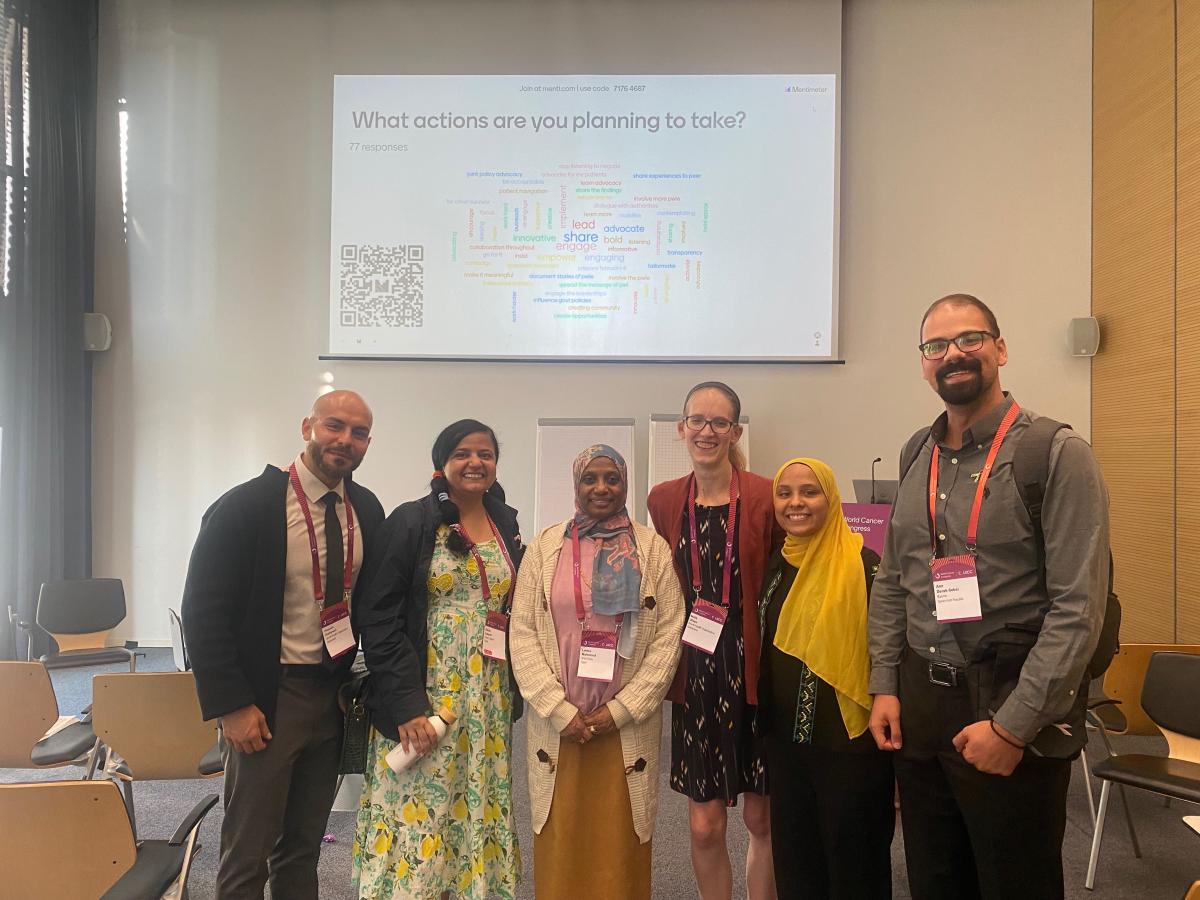WHO
The silent killer: why chronic respiratory disease deserves global attention
Multisectoral Action
25 Nov 2024
World Health Organization, Union for International Cancer Control | 25 Sep 2024
At this year’s World Cancer Congress (WCC) in Geneva, the World Health Organization (WHO) and the Union for International Cancer Control (UICC) jointly hosted a workshop on meaningful engagement of people living with cancer. The workshop was organized in view of the upcoming UN High-Level Meeting (HLM) on Noncommunicable Diseases (NCDs) and Mental Health in September 2025, where Member States will reaffirm their global commitments to NCD prevention and control.
As part of the preparatory process towards the meeting, WHO’s Global Coordination Mechanism on NCDs launched the WHO Symposium on Meaningful Engagement earlier this year, co-creating a global forum for individuals with lived experiences to contribute strategic insights and recommendations. The Symposium offers a unique platform convening a multistakeholder global community of individuals with lived experience to advocate for and advance the uptake of the WHO Framework for Meaningful Engagement globally.

The WCC workshop brought together leading experts from the lived experience community, cancer survivors, advocates, clinicians and policymakers to reflect on the progress and challenges of engaging people with lived experience in health governance, with an emphasis on participatory approaches, inclusive practices in cancer policies and care.

In a first breakout session, participants revisited the WHO Framework for Meaningful Engagement, which offers guidance on systematically integrating lived experiences of people with noncommunicable diseases (NCDs) as a form of expertise to improve health policies. Participants underscored the growing need to operationalize the Framework by developing more practical tools and resources for meaningful engagement, particularly scaling capacity building for both people with lived experience (PWLE), policymakers, and civil society organizations.
A special focus of the session was on effective ways to engage cancer survivors in health service delivery and participatory research through shaping a collective vision for advancing meaningful engagement by the next World Cancer Congress in 2026.
Participants also called for establishing and sustaining support groups to address some of the ongoing challenges cancer survivors face, such as treatment, income, and family support programs that prioritize healing and quality of life, while acknowledging that every day holds particular challenges for cancer patients and survivors. Crucially, survivors' experience and contributions should be recognized in a more formal way, for instance by offering compensation and providing a safe environment for individuals and families in vulnerable communities.
The group further called for the inclusion of people with lived experience at all levels of policy development, from planning to implementation, envisioning a national conference that brings together survivors, caregivers, policymakers, and academics. In addition to providing capacity building opportunities, continually highlighting lived experience stories and involving survivors as speakers at conferences and strategic events can facilitate more inclusive and compassionate health policies that better reflect the challenges faced by those most affected by cancer. Importantly, participatory opportunities need to be better funded to allow for an equitable and effective participation.
During the second breakout session of the event, participants reflected on early findings gathered from over 300 attendees during the inaugural meeting of the WHO Symposium on Meaningful Engagement, and provided feedback on how these messages could be improved. These insights will shape advocacy efforts leading up to the 4HLM, aiming to strengthen political commitments for meaningful engagement in health systems.
Meaningful participation in preparatory processes such as the 4HLM requires moving beyond sheer token involvement and truly measure and demonstrate the impact of engagement of people with lived experience. This includes avoiding "tick-box" approaches, instead treating people with lived experience as equal contributors in health discussions. Their lived experiences should also be considered essential inputs for research design and program development, with a critical leadership role for PWLE in co-development, co-implementation, and co-evaluation processes.
Individuals with lived experience of cancer and other NCDs face challenges that go beyond physical symptoms of the conditions that should also be taken into consideration while providing treatment. In addition to treating the condition, participants highlighted the crucial role of enhancing the well-being of individuals, and the importance of mental health and psychosocial support. Groups also discouraged the use of stigmatizing language in the development of key messages and advocacy materials.
Meaningful engagement of people with lived experience requires more comprehensive involvement, not just during clinical trials, but throughout the entire diagnosis and care pathway, as well as in life after cancer treatment. Their insights are invaluable at every stage, from early design to post-implementation review.
People with lived experience should connect with researchers who are eager to learn from and incorporate participatory approaches. This also includes capacity-building within research institutions and enhancing researchers' ability to incorporate meaningful engagement into their work.

The workshop at the World Cancer Congress 2024 emphasized that the meaningful engagement of individuals with lived experience is not just a goal for future UN meetings—but remains a crucial pillar of building effective and inclusive health systems. By creating stronger connections between civil society, governments and the global NCD community, the Congress fostered an environment for open dialogue, spotlighting concrete action to be taken in the lead-up to the 4HLM in 2025.
As the WHO Symposium on Meaningful Engagement progresses, the discussions and inputs from this workshop will inform and shape the global agenda for the meaningful engagement of people with lived experience. The key messages will contribute to collective and global advocacy efforts related to the 4HLM, ensuring that the voices of those affected by cancer and other NCDs are elevated and promoted throughout the preparatory process.